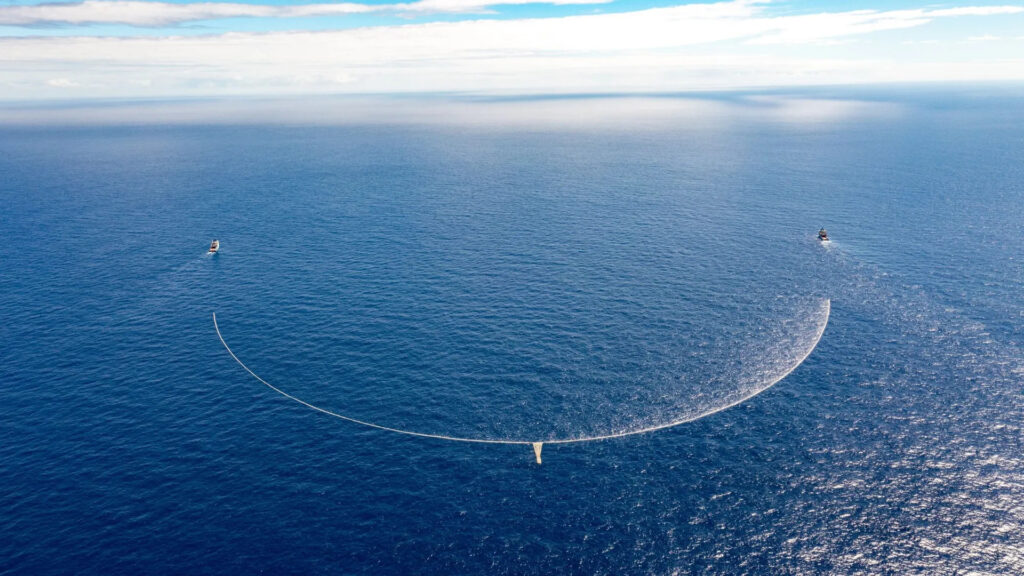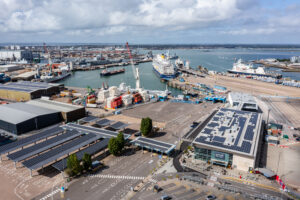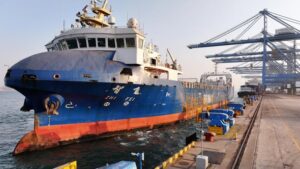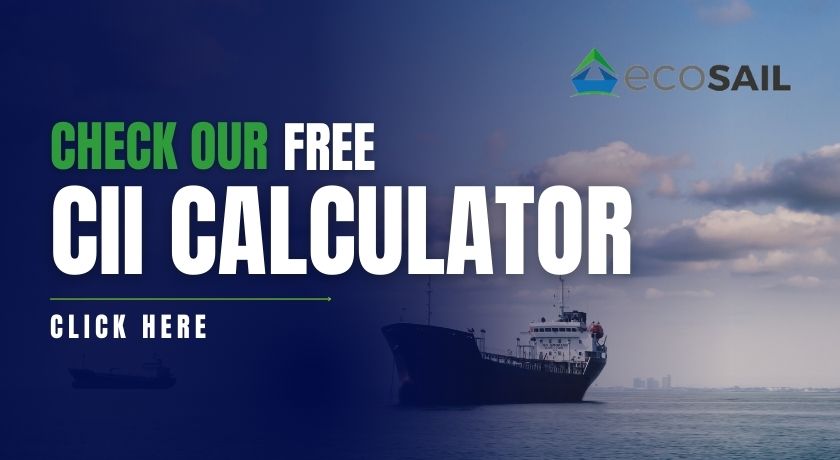Cleaner Oceans: Addressing Waste Challenges in the Marine Industry

Introduction
The marine industry plays a pivotal role in global trade but faces unique challenges in managing waste sustainably. Effective waste management not only ensures compliance with international regulations but also minimizes the environmental footprint of maritime operations. Among the critical waste streams are food waste, domestic waste, and used cooking oil (UCO), each requiring targeted strategies for proper handling, recycling, and disposal.
Food Waste: Compliance and Innovation at Sea
Featured News

Plugged In but Priced Out? UK Shore Power Faces a Commercial Reality Check

Moscow vs Tehran: Discount Battle Intensifies as China Becomes the Main Prize

Panama Cancels Canal Port Concessions, Hands Temporary Control to Maersk and MSC

China’s Autonomous Feeder Nails First Fully Automated Berthing

Food waste generated onboard ships presents significant environmental and operational challenges. Improper disposal contributes to marine pollution and breaches international environmental standards. Under the International Maritime Organization (IMO) MARPOL Annex V regulations, the discharge of food waste is strictly controlled:
- Disposal Management: Food waste may only be discharged into the sea under regulated conditions, such as comminute food waste being released beyond 3 nautical miles from shore. For unprocessed food waste, a minimum distance of 12 nautical miles is mandated.
- Onboard Processing: Ships are equipped with grinders and comminutor’s to process food waste, ensuring compliance with particle size regulations for permissible discharge in certain areas.
- Port Reception Facilities: When operating in special areas or sensitive marine environments, food waste must be retained onboard and discharged at designated port facilities.
Investing in onboard waste-to-energy systems, such as anaerobic digesters that convert food waste into biogas, represents a growing opportunity for improving sustainability and reducing operational waste loads.
Domestic Waste: Mitigating Shipboard Pollution
The management of domestic waste, including plastics, paper, and other consumables, is essential to maintaining environmental standards and operational efficiency in the marine industry. MARPOL Annex V provides clear guidelines for managing shipboard domestic waste:
- Segregation and Storage: Ships are required to segregate waste onboard, categorizing it into recyclable, non-recyclable, and hazardous materials. Plastics, in particular, must be stored separately due to their long-lasting environmental impact.
- Onboard Processing: Many vessels now utilize compactors, shredders, and incinerators to minimize the volume of waste stored onboard, reducing the frequency of waste disposal at port reception facilities.
- Recycling Initiatives: The industry is increasingly adopting recycling programs for paper, metals, and glass waste, creating circular waste management systems that align with sustainability goals.
These practices not only ensure compliance but also contribute to the broader aim of reducing marine litter and protecting ocean ecosystems.
Used Cooking Oil (UCO): A Resource, Not Waste
Used cooking oil is a significant waste product generated by ship galleys, yet it offers potential for reuse as a sustainable energy resource. MARPOL Annex V governs the handling and disposal of UCO, emphasizing proper storage and recycling to prevent environmental contamination:
- Collection and Storage: UCO must be stored in secure, labelled containers to prevent spillage and leakage into the marine environment.
- Recycling into Biodiesel: Many ports now offer UCO collection services, converting it into biodiesel—a cleaner, renewable fuel that can power auxiliary systems or support shore-based energy demands.
- Onboard Energy Applications: Ships with advanced waste management systems can repurpose UCO for onboard energy generation through cogeneration or biogas production, reducing reliance on fossil fuels.
The recycling and reuse of UCO not only reduce waste but also support the global transition toward low-carbon maritime operations.
Toward a Sustainable Future in Shipping
The marine industry’s approach to managing food waste, domestic waste, and used cooking oil reflects a commitment to sustainability and compliance with international regulations. Key strategies to enhance waste management practices include:
- Adopting Advanced Technologies: Implementing cutting-edge systems for waste segregation, processing, and recycling onboard ships.
- Enhancing Crew Training: Ensuring seafarers are well-trained in waste handling procedures to minimize pollution risks and ensure regulatory compliance.
- Collaborating with Ports: Strengthening partnerships with ports to expand reception facilities for various waste types and support circular economy initiatives.
Conclusion
The marine industry stands at the forefront of global efforts to protect ocean ecosystems while maintaining operational excellence. By addressing the challenges of food waste, domestic waste, and used cooking oil through innovative solutions and stringent compliance measures, the industry can significantly reduce its environmental impact. Sustainable waste management is no longer optional—it is a critical component of the maritime sector’s responsibility toward a cleaner, greener future.

